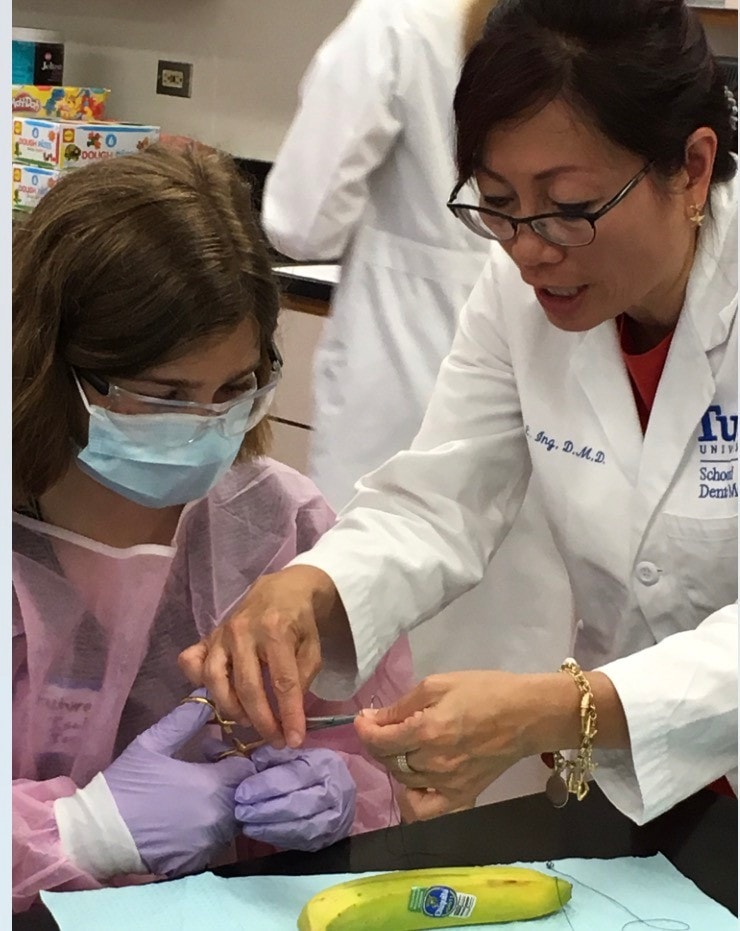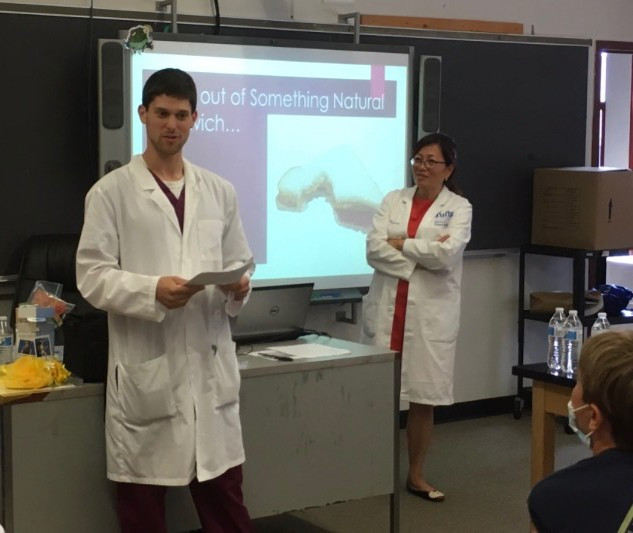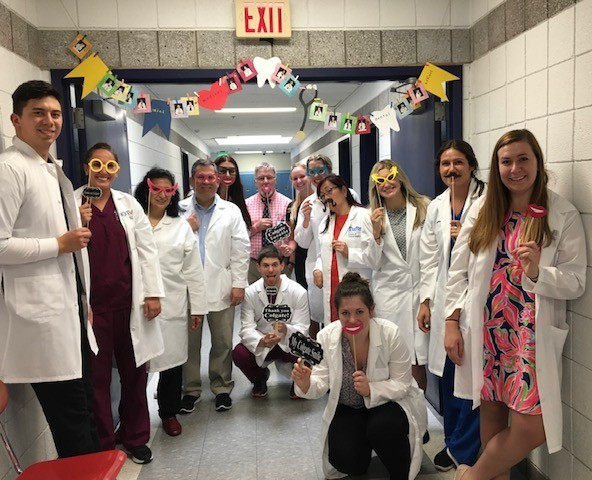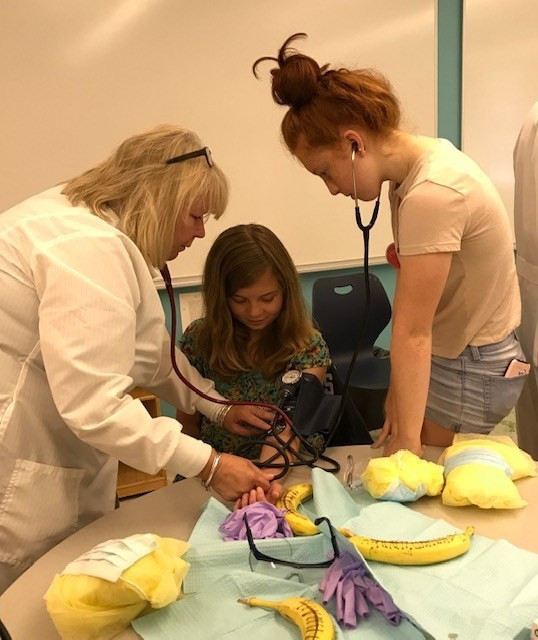
Do you remember your middle school anatomy class? The endless evenings spent reading page after page about cells and skeletons was a timeless, yet boring, way to learn about our bodies.
The human muscular and central nervous systems were complex subjects I grappled to understand. I struggled to keep attention in class as my teacher presented slides featuring charts and diagrams of muscle groups and functions I could only abstractly and vaguely comprehend.
Dr. Melissa Ing, an associate professor in the Dept. of Comprehensive Care at Tufts University School of Dental Medicine, employs a unique approach when she teaches. Dr. Ing (shown above, instructed a middle school student) manages, orchestrates and creates real-life scenarios about subjects related to health and dentistry through the Mini Medical School program she organized to teach middle school children at Boston’s Museum of Science.

“We teach kids the components of a blood vessel and have them build a vessel using different sized red buttons and white marshmallows to represent white blood cells. We teach them about dental forensics and how it can be used to solve a crime.”
Dr. Melissa Ing describes the lessons she teaches on STEM topics.
“Who Stole All the Toothbrushes?” is an activity where students use medical investigation techniques to solve a mystery. Students do more than listen to lectures; they are fully engaged and active participants in the program.
“We made little plots to go with it, and clues, so that the kids can try and learn about forensics. For instance, a fingerprint, a piece of hair, teeth marks, bite marks, saliva, a lip print on a glass…” says Dr. Ing.
She and her team use a problem-based approach and create situations that students must solve using appropriate medical techniques and procedures.
“Then, for the next module, a Good Samaritan passenger trips over a piece of luggage at the airport breaking his arm. We teach the kids how to cast a broken arm.”
Her students’ favorite lesson: one where they learn how to suture a wound. Of course, they don’t suture a real, live participant, instead they use bananas.

“The kids are given masks, gowns and gloves, so they have a great time as a doctor for the day. They sometimes can’t stop stitching the bananas and will name their bananas afterward, which is really funny.”
Students of Dr. Melissa Ing learn how to suture a wound using a banana as their patients.
Dr. Ing isn’t alone. She enlists a team of dental students and faculty members who help make the Mini Medical School possible.
In 2015, she started the program in Boston, but two years ago, she set sail and took the program to Nantucket Island Public Schools, a school district on an isolated island where students have limited resources to learn about STEM fields—which are occupations that encompass Science, Technology, Engineering and Mathematics.
The Mini Medical School operates on grant funding and the kindness of volunteers who help make it possible, although when she first visited the school district in 2017, the school didn’t have a grant to pay for the program. Luckily, the town helped the school secure the funds.
The following year, the Nantucket school district received a donation from Innovation Pathways, an award granted by the Massachusetts Executive Office of Education, that enabled Dr. Ing and her colleagues to visit a second time.

Dr. Ing draws on nearly 30 years of dental experience. She earned a Bachelor of Science degree from the University of Western Ontario and a Doctor of Dental Medicine degree from Tufts University School of Dental Medicine.
After completing her studies, Dr. Ing built and operated her own private practice and taught at the University of Connecticut. Shortly after, she became a full-time employee at UConn, where she held various positions, such as Team Leader and Director of Predoctoral Clinics. After 20 years there, she secured an associate professor position at her alma mater—Tufts University—and began teaching in 2011.
What’s next for Dr. Melissa Ing’s Mini Medical School?
The program will continue at Boston’s Museum of Science. Through grant funding, Dr. Ing and her team hope to return to Nantucket for a third year. She plans to visit Martha’s Vineyard for the first time as well, where students await the opportunity to suture bananas and learn about dental and medical professions.
STEM fields have grown to 17.3 million jobs or 79 percent since 1990, according to the Pew Research Center. Dr. Ing and her Mini Medical School are helping inspire the scientist, physicians and dentists of tomorrow.
Celebrate November, Women and Girls in STEM Month
Find out what the Museum of Science in Boston has in store for Women and Girls in STEM Month: https://www.mos.org/women-and-girls-in-stem-month
The post Dr. Melissa Ing teaches STEM through Mini Medical School appeared first on The Daily Floss Blog | Benco Dental.


